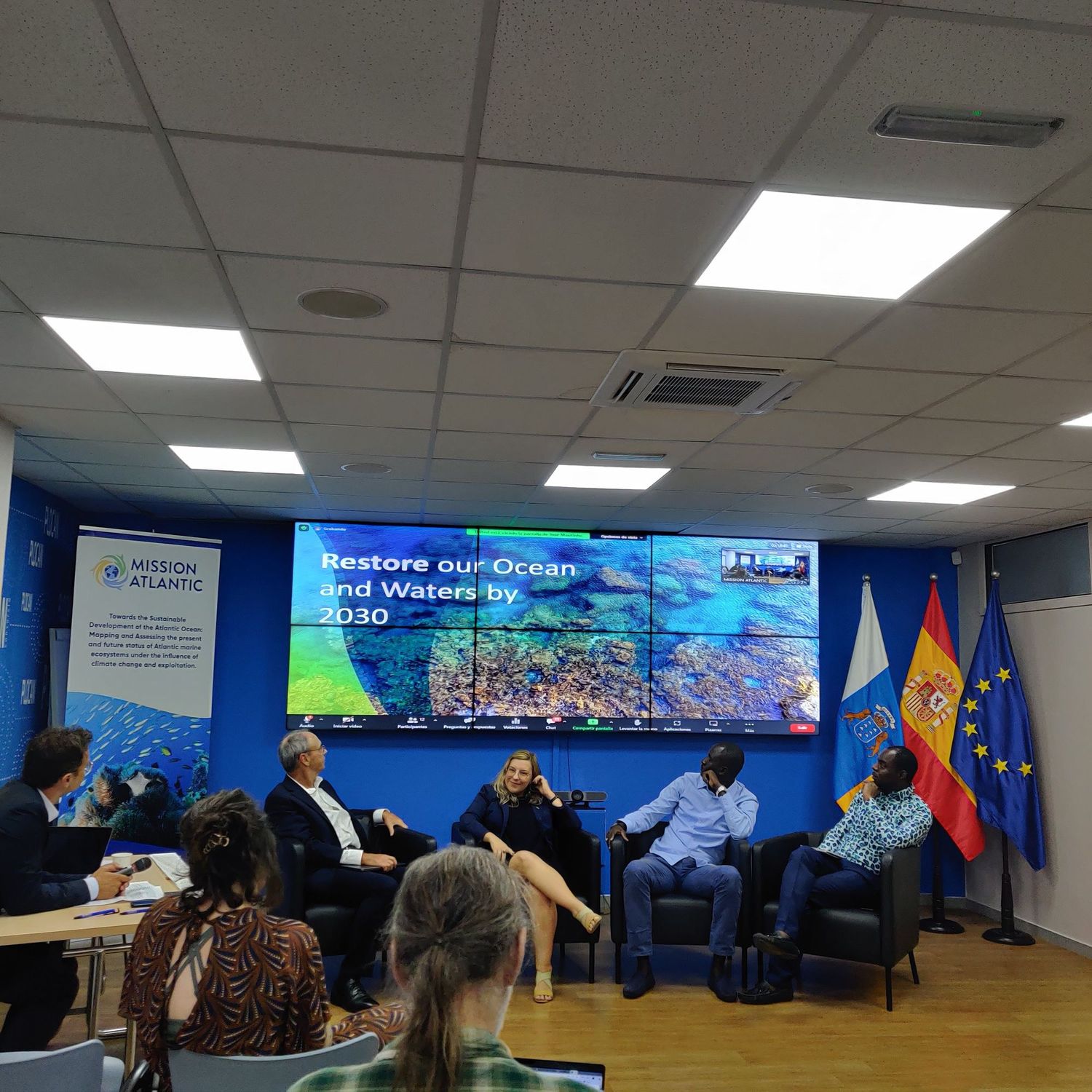The Atlantic is the largest sea basin for the EU, representing 36% of the EU blue economy gross added value. The Canary Current upwelling system, a wind-driven eastern boundary current named after the Canary Islands and one of MISSION ATLANTIC's case studies, is a region central to a range of maritime activities including fishery, aquaculture, tourism, renewable energy, oil and gas extraction, and transport. It's also a very diverse region with fragmented ocean governance and resource management sectors.
The EU H2020 funded MISSION ATLANTIC project hosted a policy event on 21 October 2022 at the Oceanic Platform of the Canary Islands (PLOCAN) on Gran Canaria. The event aimed to establish a dialogue around the development of a sustainable blue economy in the region and discuss regional strategies for the shared use of the ocean commons.
Led by MISSION ATLANTIC Project Coordinator, Patrizio Mariani, 14 speakers including an expert panel shared their experience and knowledge on science and technology to support the blue economy in the region, results from the systematic ecosystem assessment carried out by MISSION ATLANTIC, social conflicts, emerging issues, ways to improve ocean observations, cooperation, and collaborative models, as well as new opportunities for the Atlantic.
An important topic discussed during the session is the increased concerns of the local population in Senegal about gas extraction and processing and its impact on the ecosystem. The experts advised that a precautionary approach be taken in response to increasing energy demands from the region whilst also increasing protection and restoration measures for key ecosystems including deep-sea coral reefs and fish habitats as well as social aspects associated with local coastal communities in the area. While specific to the region, this issue highlights just how important it is to evaluate ecological, social, and economic conditions and to engage local populations regarding the exploitation of natural resources.
Dialogue and stakeholder engagement are central to MISSION ATLANTIC's Integrated Ecosystem Assessment (IEA). The results presented during the event highlighted how this approach can deliver systematic mapping of linkages between human activities, pressures, and ecosystem components in evaluating ecosystem vulnerabilities and risks under multiple pressures. The panel of experts advised that this approach be taken in neighbouring countries.
The experts concluded with a call to action for the implementation of the All-Atlantic Research and Innovation Alliance, the development of an equitable blue economy in the region, and an open and honest dialogue supported by transparent and knowledge-based science; a message they would like to transfer loud and clear to all world leaders.
A full summary of the event is now available to download here.
Recordings of all the presentations made during the event can be viewed here.
